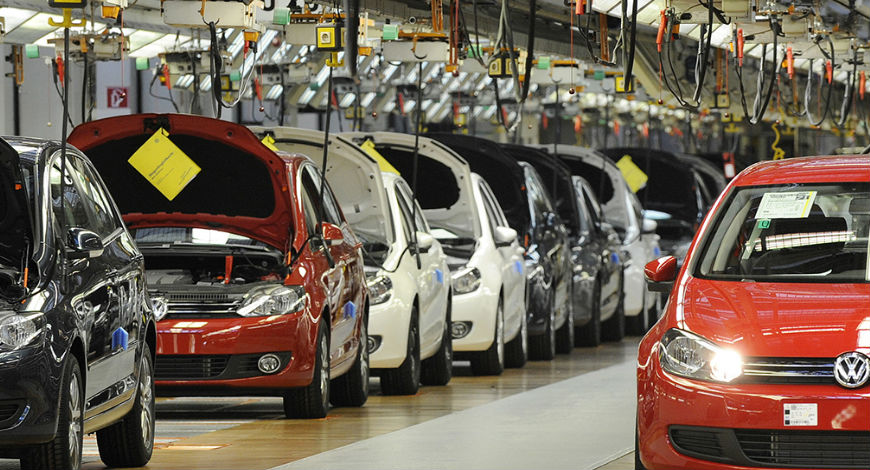The global shortage of semiconductors has brought big manufacturers like Toyota, Volkswagen, Daimler and General Motors on their knees. Besides that, even Ford has decreased its production while GM has shut few of its facilities.
The coronavirus pandemic is seemingly bringing unpredictable challenges for the automobile industry. The global chipset shortage has sent the whole industry across the world into a fuss. The panic created due to low production of chipsets has halted or slowed down the production of cars and automobile vehicles across various manufacturing facilities of car manufacturers.
This global shortage of semiconductors has brought big manufacturers like Toyota, Volkswagen, Daimler and General Motors on their knees. Besides that, even Ford has decreased its production while GM has shut few of its facilities. The unexpected situation pertaining to semiconductor supply has pressurised even electric vehicles manufacturers.
Why is a shortage of semiconductors occurring?
The pandemic has brought unprecedented instances to wreak havoc on the industry. During the initial phases of the pandemic when most of the countries were under lockdown, people were generally using consumer products. With that, most of the official work was also being done through online resources. The concept of online classes, webinars, and virtual workshops also came into the limelight that they are being comfortably used till now.
With almost all the sources of recreation and entertainment shut, people resorted to the usage of consumer tech gadgets. Therefore the demand and consumption of devices like laptops, gaming computers, consoles, PlayStation, Xbox, and televisions soared rapidly. As a consequence of it, the need for semiconductors and chipset grew manifold in this sector.
In addition to it, due to a long-persisting stifle in the travelling and tourism industry, demand for motor vehicles and cars spiralled down heavily. Following this, car- makers started slashing orders for chipsets due to lower sales. Further, to meet the growing demand for semiconductors in the consumer tech industry, chipmakers put all their resources to meet that demand instead of conceding to sluggish requirements from the automobile industry. Along with this, the world’s growing demand for 5G network and enabled devices is rising, which does require the utilisation of semiconductors in large amounts.
Sudden rise in the demand of automobiles
After almost a year of the devastating pandemic, the automobile industry is once again witnessing a boom in the sales of cars and heavy vehicles. But, currently, chipmakers are not ready to tackle the demand simultaneously from both the industries. This has severely led to the shortage of chipsets used in the production of automobile components.
According to a report by Deloitte, car manufacturers use semiconductors on a considerably larger scale. The report suggests that 40 percent of the manufacturing of new cars depends on semiconductors and electronic components. Today, maximum cars are equipped with tablet-like displays, GPS, cameras, wi-fi connectivity, and cellular connectivity. Subsequently, all these require semiconductors to be embedded in them for their seamless functioning.
As of now, automakers are apprehensive that this shortage may severely impact the production and dismantle the manufacturing chains in factories. Several of them have already warned that normal production cannot shift in the imminent future if the global chip shortage continues as it is. With that, they also blame the lack of proper planning and prediction of the near future pertaining to the unprecedented situation posed by the pandemic.
As per a Fitch Solutions report the shortage might continue to disrupt the production till 2023 causing a delay in recovery of new vehicles while also harshly hitting sales and profitability.
Impact on automobile manufacturing giants
Automakers in Japan have cut-short their production in the months to come while automobile manufacturers in China are also impacted since December. Toyota has already halted four of its production facilities in Japan’s Aichi plant. In January, it affirmed that it is cutting production of full size trucks while reducing output by 40 percent in its San Antonio facility. The impact is so huge that it has also halted the production in its Guangzhou facility in China which produces 300,000 vehicles annually.
On the other hand, Honda has also cut shifts while replacing models and adjusting work hours. It did stop the production facility at Swindon facility but restarted it on January 22. Even in the US and Canada, it plans to slash production by a few thousand. In the league, Nissan has also slashed the production of vehicles by 8,000 units and predicts that it may go to as high as 10,000 by March.

